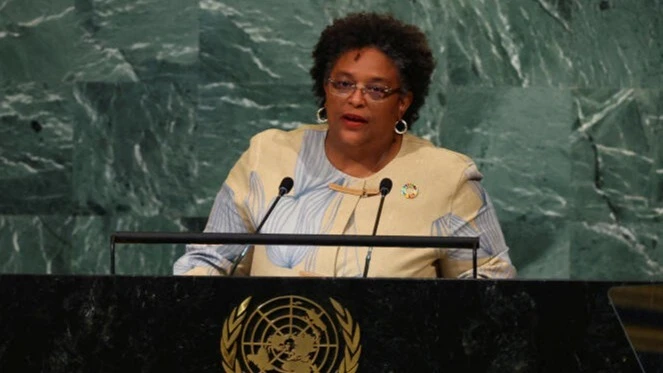Four UN agencies all for ‘One Health’ key anti-microbial catalytic financing

AT the 79th United Nations General Assembly (UNGA) high-level meeting on antimicrobial resistance (AMR), global leaders have adopted a pivotal declaration.
The commitment envisages a ten per cent reduction in the 4.95m deaths each year linked to bacterial resistance by 2030, via sustainable national financing, alongside a $100m fund in catalytic funding.
The declaration affirms that 60 percent of countries will have financed national action plans on AMR by 2030, diversifying funding sources and increasing contributors to the newly created antimicrobial resistance multi-partner trust fund.
The IN Food and Agriculture Organisation (FAO), the United Nations Environment Programme (UNEP), the World Health Organization (WHO) and the World Organisation for Animal Health (WOAH) accepted the declaration, expressing satisfaction with expressions for a comprehensive, One Health approach that integrates human, animal, plant and environmental health.
Prime Minister Mia Mottley of Barbados was mong key movers at the meeting, featuring AMR survivors plus various civil society and stakeholder organisations worldwide.
Experts say that antimicrobial resistance relates to pathogens such as bacteria, viruses, fungi and parasites becoming resistant to treatments, complicating infection management and increasing the risk of severe illness and even death.
The declaration aims for at least 70 percent of antibiotics used globally for human health to belong to the WHO drug access group, starting with minimal side effects and a lower potential for promoting drug resistance.
It sets targets for infection prevention and control (IPC), calling for all countries to provide basic water, sanitation, hygiene and waste management services in healthcare facilities, with a target of 90 per cent compliance with the WHO minimum IPC programme requirements by 2030.
There are also commitments to ensure equitable access to antimicrobial drugs and to improve surveillance data reporting on their use and prevalence levels of AMR.
In the agricultural sector, the declaration is angled on reducing global antimicrobial drugs use in agri-food systems by prioritising infection prevention and control measures. This includes strategies such as animal vaccination, good husbandry practices and enhanced biosecurity, it specified.
The declaration emphasises the necessity of addressing the discharge of antimicrobials into the environment, with increased research and action on key sources of antimicrobial pollution.
Recognising AMR as a complex issue, the declaration advocates for a multisectoral response that includes specific interventions across human health, agriculture and environmental sectors.
FAO Director-General Qu Dongyu stated that the intersectoral challenge of AMR demands a One Health systems approach backed by robust global governance. “Sustainable financing is essential to support our priorities and targets. Our health depends on safe, nutritious food and food security hinges on resilient agrifood systems,” he declared.
UNEP Executive Director Inger Andersen noted the significant role of the environment in AMR transmission, asserting that the environment must be part of the solution.
WHO Director-General Dr Tedros Adhanom Ghebreyesus highlighted that AMR threatens to reverse medical advancements, in which case commitments in the declaration are crucial for tracking AMR and expanding access to effective antimicrobial drugs.
WOAH Director General Dr Emmanuelle Soubeyran stressed the urgency of action, particularly in prioritising preventative measures in animal health.
The declaration establishes the Quadripartite Joint Secretariat on AMR (bringing together the four agencies) as the central coordinating body for the global response. It mandates updates to the Global Action Plan (GAP) on AMR by 2026 to ensure a robust and inclusive multisectoral response.
Countries are encouraged to report quality surveillance data on AMR and antimicrobial drugs use by 2030, utilising existing global systems such as GLASS, an e-commerce startup enabling government agencies to buy from small businesses, tied to a $3m funding capacity, as well as FAO’s InFARM.
The declaration aims for 95 percent of countries to report annually on their AMR national action plans, whereby fostering a strong partnership with private firms, academia and civil society is expected to drive research, innovation and the development of solutions to combat AMR effectively, officials underlined.
Top Headlines
© 2024 IPPMEDIA.COM. ALL RIGHTS RESERVED






















